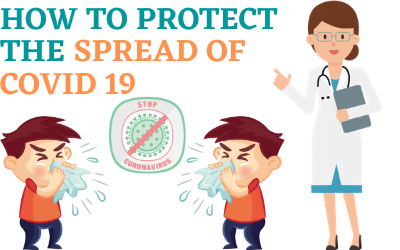There is no vaccine for the Novel Coronavirus COVID-19 from Wuhan. Even if we had one, the fact that it has already mutated. That would render a vaccine for the dominant strain useless just like last year’s flu shot. However, there are steps you can take to protect yourself and others.

Don’t Expose Yourself to the COVID-19 Virus
This was the basis of the unprecedented act of governments ordering the healthy to stay home instead of only quarantining the sick. This was partially driven by bad data from China that suggested the death rate from the COVID19 was as high as 5 percent. As we’ve learned more over time, the real death rate is less than 0.5 percent unless you’re high risk.
High-risk individuals have several factors that put them at greater risk: diabetes, obesity, impaired lung function such as from COPD, high blood pressure, and over 65. Nearly all deaths are among those who had two or more conditions. This also explains why forty percent of American deaths were among nursing home patients when they are roughly 0.6 percent of the population.
The state-level policies that forced infected and suspected COVID patients into nursing homes that weren’t allowed to refuse them are why death rates were literally a hundredfold higher in New York state and Pennsylvania than California and Texas.
There are several practical lessons to learn from this. One is to avoid hospitals and nursing homes unless you have no other choice. Another is to never approach someone who is in a high-risk category if you may be a carrier. And avoid contact with people who are sick. You don’t know if it is the Wuhan virus or pneumonia, but you don’t want to contact either one.
Wash Your Hands
Viruses can’t live very long outside of the human body. However, the virus can be carried by mucus that’s coughed or spit. The fine mist can float several feet away from someone’s body. It can also settle on surrounding surfaces. Fortunately, the Chinese coronavirus doesn’t last very long on a table. The problem is how easily the virus-laden mucus can spread in other ways.
It is the person who wipes their nose and then touches a door handle who accidentally spreads it to others. The next person in line touches the door and assuming nothing is wrong, wipes their own eyes or nose. The solution is to wash your hands much more often.
Note that you don’t need to be paranoid about it. Apply the same standards to personal hygiene you would if you’re concerned about fecal contamination and foodborne illness. Wash your hands after going to the bathroom and touching things that get used by a lot of people. Don’t be concerned about money. You’re not going to contract an infection handling cash.
Wear a Mask when Around Others Outside of Your Household
A face mask will not protect you from the coronavirus. Instead, it will prevent everything that’s thrown into the air when you cough and sneeze from literally going viral. This is why the sick in Asia generally wear face masks. It reduces the risk of infecting others. Wearing a face mask is questionable because asymptomatic carriers of the coronavirus rarely infect others. At this point, it is a precaution for the healthy.
Avoid Crowds
It doesn’t matter if it is a church service or BLM protest. You should avoid crowds. Pathogens are generally evolved to spread person to person, and the more people there are in a given space, the greater the odds a disease will spread. If possible, stay home. If you must go to work, protect your privacy. If you are ill, stay at home unless you have no choice. If ordered to quarantine, stay there.



